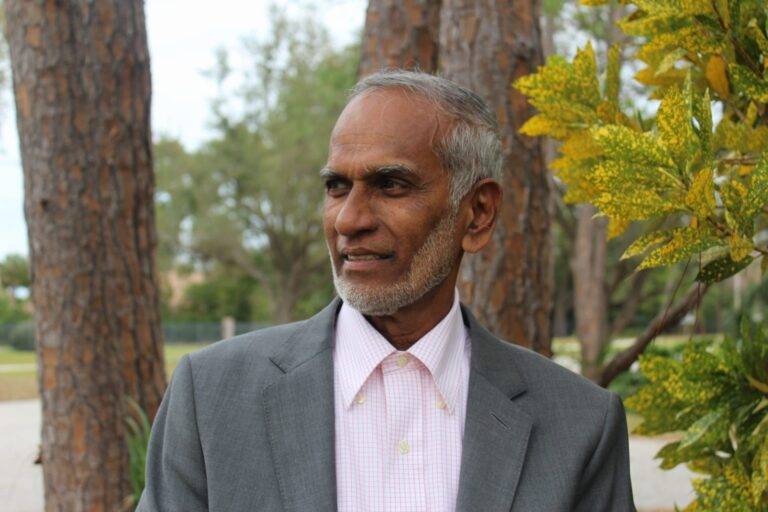Jacinda Ardern – A Prime Minister To Emulate
We are living in tense times. Hatred and bigotry against minorities have intensified. The recent burning of the Quran in Sweden undergirds the apparently never-ending spewing of religious hatred. Old laws are changed; and new ones are enacted to legitimize the mistreatment of Muslims, who are, of course, the minority group that receives the brunt of policies aimed at perpetuating hate and discrimination. India and France quickly come to mind in this regard. Both are riding the waves of right-wing extremism-Hindutva in the former and White supremacy in the latter. When Muslims are horribly mistreated and killed in these countries because of their faith, nothing happens -no condemnation, no intervention on the part of the leaders. All of this brings into focus the leadership of Jacinda Ardern who recently resigned as prime minister of New Zealand. She has recently been described as “an icon to many.”
An Icon To Many
“An icon to many” is a pregnant phrase and must surely speak to the perceptions and views of all New Zealanders, not just Christians, who are the majority, but Muslims and others also. A definition of an iconic figure that is proffered is a person who is highly admired because of their marked influence in one or more important areas. An iconic leader is a leader whose sphere of influence is impactful and wide in scope. People of all walks of life coalesce around and defer to such a leader easily, especially when policy decisions are driven by the interest of citizens and the sensibilities of the most vulnerable. These encapsulate the personality of Jacinda Ardern. That is why, to New Zealanders, as well as to many around the world, Jacinda Ardern seems to fit the characterization of an icon perfectly.
Given the state of international politics, being courageous and compassionate could be the Achilles heel of any leader who demonstrates the ideals of courage and compassion. A leader who, for example, unequivocally condemns violence against Muslims, arguably the most misunderstood and victimized people on earth, becomes vulnerable to all kinds of degrading insults. In fact, some leaders themselves expound their worldview in such a way as to provoke violence against minorities. The call for genocide against Muslims in some places is inextricably linked to the way that leaders “set out a worldview, diagnose a set of problems, provide a resolution, and describe the means of getting there” (O’Neil 265). The protagonists of Hindutva represent a classic example of this.
Other leaders may not be guilty of this but show little understanding and compassion for victims of hate and violence in their countries. They behave as though compassion and kindness are a curse-something that should not reside in the bosom of leaders. New Zealand’s Jacinda Ardern has proven to be a rare and bona fide exception to this incapacitating mentality. The Christchurch massacre of Muslims in 2019 proves this beyond a doubt.
A Leader During Crisis
New Zealand respects the civil and religious rights of all its citizens-majority and minority. People coexist so nicely that no one could have suspected that it would soon become the theater for the worst terrorist attack in its history. So, when gunman Brenton Tarrant entered two mosques in Christchurch on March 15,2019 and opened fire indiscriminately killing 51 Muslim worshippers, New Zealanders were traumatized beyond belief. Shocked and horrified, citizens came out in the open to denounce and condemn the horrendous crime that Tarrant had committed. They went to the mosques where the crime had been committed and poured their hearts out. At the forefront of this unprecedented demonstration of anger against the perpetrator and sympathy for the victims was no other than their prime minister.
If there is one criterion that supersedes all other criteria in measuring a leader, it is how that leader behaves in a time of an unfathomable human tragedy such as the one that occurred in Christchurch, New Zealand in 2019. In the aftermath of that tragedy, a shocked Jacinda Ardern wasted no time in labelling the act a terrorist act and in conveying to the Muslims that they were an integral part of the social fabric of New Zealand. She burst upon the scene with much needed words of comfort, compassion, and sympathy for New Zealand’s Muslims, assuring them that the whole of New Zealand was bleeding and praying for them. Donning the head scarf, a distinctive feature of Muslim women’s dress code, she visited the mosques where the terrorist acts had been perpetuated to personally empathize with the Muslim community and to show her disdain for the cowardice of terrorist Brenton Tarrant and all that he represented. As proof of her contempt for his cowardly act, she never mentioned his name in her public response.
Her reaching out to the frightened and traumatized Muslim community this way not only won the admiration of her own people but also struck a chord with many around the world. “That message, and her authentic embrace of New Zealand’s Muslim community, resonated around the world at a time when many nations are defined by the abundance of dividing lines than the boldness of their unity” (Luscombe). A definite indication of her global reach.
Not content with decidedly identifying with the grieving Muslim community, Jacinda Ardern adamantly declared that she would be introducing a law to ban semi-automatic weapons that had been used during the terrorist attack. She also made it clear that her gun control legislation would also cover other dangerous weapons. We know how contentious and divisive the gun control issue is in some countries. In Jacinda’s New Zealand, that was not the case when legislation to change the law was proposed. This is a testimony to her magnetic strength as a leader. And on the environment where many leaders have prevaricated, she has earned a stellar reputation for her proactiveness.
She is reported to have said that “she sometimes despairs at the pace at which other countries are making changes to fight climate change and vowed that New Zealand would not be a slow follower” (McDonald). This is an encapsulation of her foresight and clarity on one of the most urgent issues that society faces. It clearly shows that, on a matter that warrants urgent action, she is not constrained by the folly and/or the vested interest of other world leaders.
Jacinda Ardern has gained an iconic status for her forthrightness in calling out right- wing extremism as terrorism, for her swiftness in embracing and in identifying with New Zealand’s Muslim community in the aftermath of the massacre, for her profound sense of concern for the environment, and for her decisiveness in calling for legislation to ban dangerous weapons. Hers is not the case where she “abuts but never really confronts these” (Gardner 141) pressing issues. On the contrary, she has extensively and admirably tackled all of them. In so doing, she has passed the litmus test of an iconic leader.
Works Cited:
O’Neil, H. Patrick. Essentials of Comparative Politics. New York: W. W. Norton & Company, 2010
Gardner Howard. “Review of the Second Self: Computers and the Human Spirit.” Thinking Through the Essay. Ed. Judith Baker-Sandbrook et al. McGraw -Hill Limited ,1986. P.141
Luscombe, Belinda. “A year After Christchurch, Jacinda Ardern Has Won the World’s Attention”. How Will She Use It? The Time, Feb 20, 2020.wwwtime.com
McDonald, Joshua. “New Zealand Takes the Lead on Climate Change.” The Diplomat,13 Nov.2019.
www.thediplomat.com





1 comment
Zak
This a well compile article that highlights the great qualities of Jacinda Ardern.